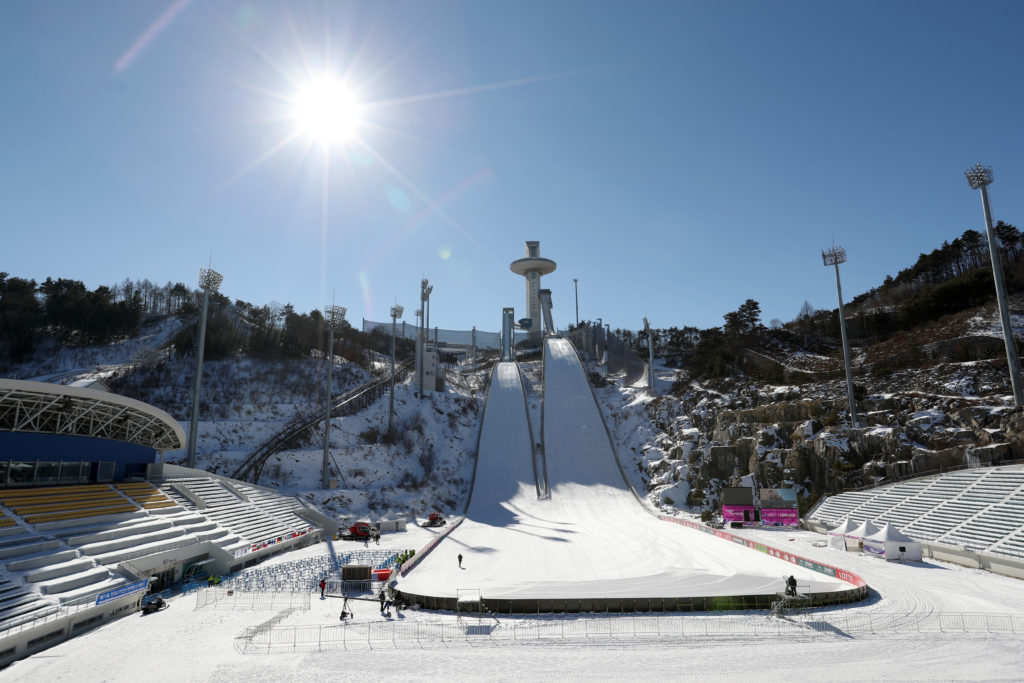The Peninsula
Why There Won’t Be a Military Conflict During the 2018 Winter Olympics
Published December 27, 2017
Author: Troy Stangarone
Category: North Korea, Inter-Korean, South Korea

By Troy Stangarone
With the 2018 PyeongChang Winter Olympics rapidly approaching, concerns about safety have been in the news. Earlier this year, France indicated that it might withdraw its athletes if their safety could not be assured, while U.S. Ambassador to the United Nations Nikki Haley has suggested that there may be the prospect of conflict during the Olympics. While perhaps prudent to acknowledge the potential concerns for the Olympics from North Korea’s increasingly provocative behavior, concerns about safety during the Olympics are likely misplaced.
As tensions on the Korean Peninsula have risen as a result of North Korea’s three intercontinental ballistic missile tests (ICBM), test of a hydrogen bomb, and stern words out of Washington suggesting the potential for a military solution to address North Korea’s growing capabilities, concerns about the safety of the 2018 Winter Olympics has understandably risen. While perhaps still low, the prospect of military intervention being used to reverse North Korea’s nuclear program is higher than it has been in decades. There is also precedent for North Korea seeking to create tensions around the Olympics on the Korean Peninsula. In the lead up to the 1988 Seoul Summer Games Pyongyang downed Korean Air Flight 858 in what was largely seen as an effort to discourage participation at the Games in Seoul. North Korea’s own unwillingness to date to allow its athletes to take part in the Winter Olympics or dial down the tensions on the peninsula only adds to the concerns.
While it is prudent to be concerned about a potential disruption of the Winter Games in PyeongChang by North Korea, Pyongyang also has little incentive to antagonize China or Russia by placing their athletes and citizens at risk during the games. If Chinese or Russian civilians, along with others, were to die as a result of a North Korean attack on the Olympic Games it would galvanize international opinion against the regime in a way not seen to date and place pressure on Moscow and Beijing to take a harder line against Pyongyang then they have wanted to up to this point. Attacking the Olympic Games could also have the side effect of convincing the international community that a regime that felt it was acceptable to attack the Olympics in peacetime is not one that could be trusted to possess weapons of mass destruction, and thus further build support for the use of military force against North Korea. In essence, there is little incentive for North Korea to endanger the Olympic Games.
However, while there may be little incentive for North Korea to attack the Winter Games, Pyongyang may be motivated to undermine the overall success of the Olympic Games and raise tensions further in the region. Concerns about safety and Chinese retaliation over South Korea’s decision to deploy the Terminal High Altitude Area Defense (THAAD) missile system, among other factors, have already contributed to slower ticket sales than normal. As a result, we should not be surprised if North Korea conducts additional missile tests or engages in other provocative actions in the lead up to the Olympics or during the Games themselves to add to existing concerns over the Olympics. A marred Olympic Games would likely be viewed as much as a success in Pyongyang as a successful Games would be in Seoul.
In contrast to concerns over North Korea’s potential efforts to undermine the 2018 Winter Olympics, South Korean President Moon Jae-in has pushed for the Olympics to be a springboard for peace on the Korean Peninsula. He has encourage the participation of North Korean athletes and called for the postponement of U.S.-South Korean military exercises until after the Olympic and Paralympic Games are concluded in March.
North Korea could yet surprise us and embrace President Moon’s overtures and send its athletes to PyeongChang or take other steps to begin the process of dialogue during the Olympics. However, it is more likely that North Korea will seek to raise tensions in the lead up to the 2018 Winter Olympics than to embrace a path towards dialogue or take the more extreme course of endangering the lives of any of the participants.
Troy Stangarone is the Senior Director for Congressional Affairs and Trade at the Korea Economic Institute of America. The views expressed here are the author’s alone.
Photo from Korea.net’s photostream on flickr Creative Commons.
